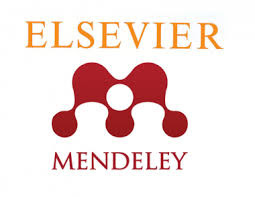INTERNATIONAL JOURNAL OF CREATIVE RESEARCH THOUGHTS - IJCRT (IJCRT.ORG)
International Peer Reviewed & Refereed Journals, Open Access Journal
ISSN Approved Journal No: 2320-2882 | Impact factor: 7.97 | ESTD Year: 2013
Call For Paper - Volume 12 | Issue 7 | Month- July 2024
Scholarly open access journals, Peer-reviewed, and Refereed Journals, Impact factor 7.97 (Calculate by google scholar and Semantic Scholar | AI-Powered Research Tool) , Multidisciplinary, Monthly, Indexing in all major database & Metadata, Citation Generator, Digital Object Identifier(DOI)
Contact Us Click Here
WhatsApp Contact Click Here
Published Paper Details:
Paper Title
SKIN CANCER DETECTION USING MACHINE LEARNING TECHNIQUE
Authors
Mansi Mishra, Dr. R.K. Khare
Keywords
Skin Disease, Machine Learning, Image Segmentation, Decision Tree, Support Vector Machine, Nearest Neighbor (KNN)
Abstract
Skin disorders are a prevalent public health issue in every region of the world. It is impossible to see the dangers posed by the diseases, which not only wreak havoc on one's physical health but also set the stage for mental sadness. In addition to this, it has been linked to incidences of skin cancer in extreme circumstances. As a consequence of this, one of the most difficult jobs involved in medical image analysis is the diagnosis of skin disorders based on clinical photographs. In addition, identifying skin illnesses manually by medical professionals is an arduous and time-consuming process that is also very subjective. As a direct consequence of this, patients and dermatologists alike want automated skin disease prognosis, which allows for more efficient treatment planning. In this study, we provide a method for the removal of unwanted hair from digital photographs that is based on morphological filtering, namely the Black-Hat transformation and the inpainting algorithm. Following this, we use Gaussian filtering to deblur or denoise the images. In addition, we use an automated ANN segmentation approach to separate the healthy lesions from the ones that are impacted. We use a technique called the Grey Level Co-occurrence Matrix (GLCM) in conjunction with statistical characteristics in order to extract the underlying input patterns from the skin photos. Three computationally efficient machine learning techniques, Decision Tree (DT), Support Vector Machine (SVM), and K-Nearest Neighbor (KNN) classifiers are applied using the extracted features for effectively classifying the skin images as melanoma (MEL), melanocytic nevus (NV), basal cell carcinoma (BCC), actinic keratosis (AK), benign keratosis (BKL), dermatofibroma (DF), vascular lesion (VASC), and Squamous cell carcinoma (SCC). the HAM10000 datasets are utilized in the process of validating the models. SVM has a performance that is marginally superior to that of the other two classifiers. In addition to this, we have evaluated our procedures in light of the most recent scientific developments
IJCRT's Publication Details
Unique Identification Number - IJCRT2307676
Paper ID - 241580
Page Number(s) - f771-f777
Pubished in - Volume 11 | Issue 7 | July 2023
DOI (Digital Object Identifier) -
Publisher Name - IJCRT | www.ijcrt.org | ISSN : 2320-2882
E-ISSN Number - 2320-2882
Cite this article
Mansi Mishra, Dr. R.K. Khare, "SKIN CANCER DETECTION USING MACHINE LEARNING TECHNIQUE", International Journal of Creative Research Thoughts (IJCRT), ISSN:2320-2882, Volume.11, Issue 7, pp.f771-f777, July 2023, Available at :http://www.ijcrt.org/papers/IJCRT2307676.pdf
Article Preview
Indexing Partners
Call For Paper July 2024
Call For Papers
July 2024
Volume 12 | Issue 7
Last Date :
31-Jul-2024
Submit Manuscript Online Impact Factor: 7.97 Review Results : Within 02-03 Days Paper Publication : Within 02-03 Days
July 2024
Volume 12 | Issue 7
Last Date :
31-Jul-2024
Submit Manuscript Online Impact Factor: 7.97 Review Results : Within 02-03 Days Paper Publication : Within 02-03 Days
Published Issue Details
For Authors
Forms / Downloads
Other IMP Links
Indexing Partner
Research Area
LICENSE
ISSN and 7.97 Impact Factor Details

ISSN: 2320-2882 Impact Factor: 7.97 and ISSN APPROVED Journal Starting Year (ESTD) : 2013
ISSN and 7.97 Impact Factor Details

ISSN: 2320-2882 Impact Factor: 7.97 and ISSN APPROVED Journal Starting Year (ESTD) : 2013
DOI Details
CONFERENCE
CONFERENCE MANAGMENT & PUBLICATION CONFERENCE PROPOSAL
RECENT CONFERENCE

CONFERENCE PROPOSAL CONFERENCE PROCEEDINGS

CONFERENCE PROPOSAL CONFERENCE PROCEEDINGS
For Reviewer /Referral (RMS) Earn 500 per paper
Important Links
NEWS & Conference
Digital Library
IJCRT RMS | Earn 500 Per Paper.
LICENSE
Indexing Partner





































































